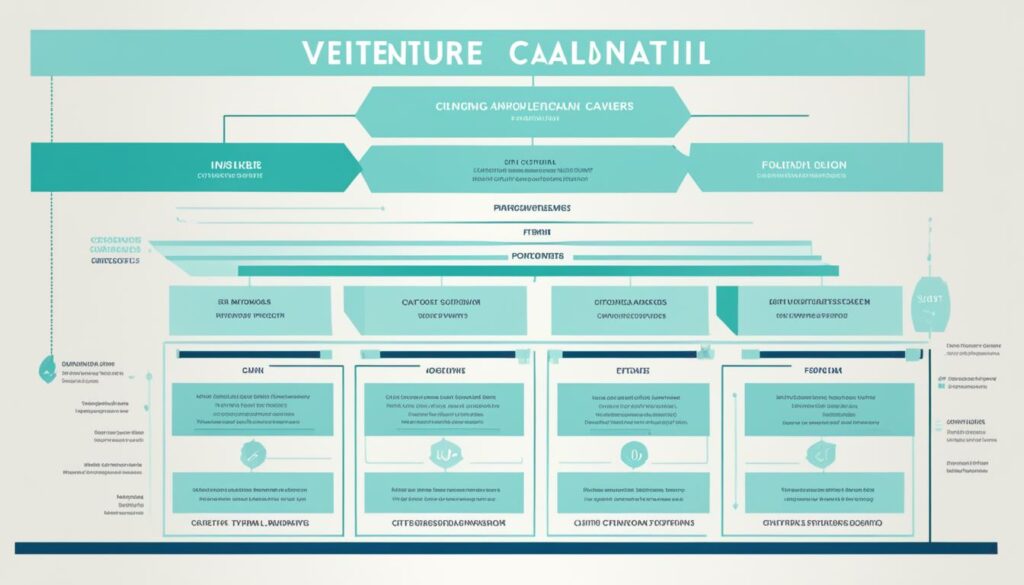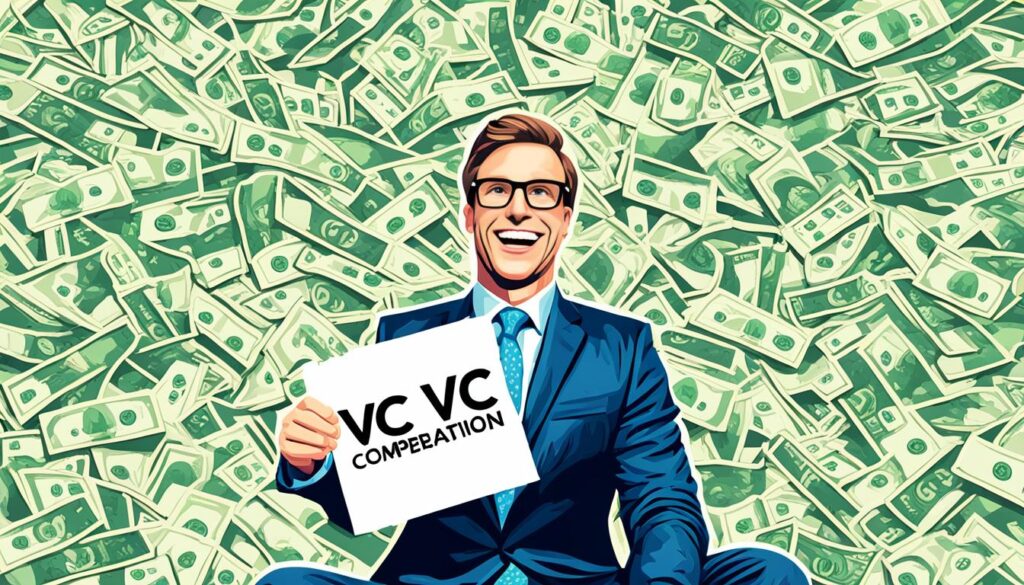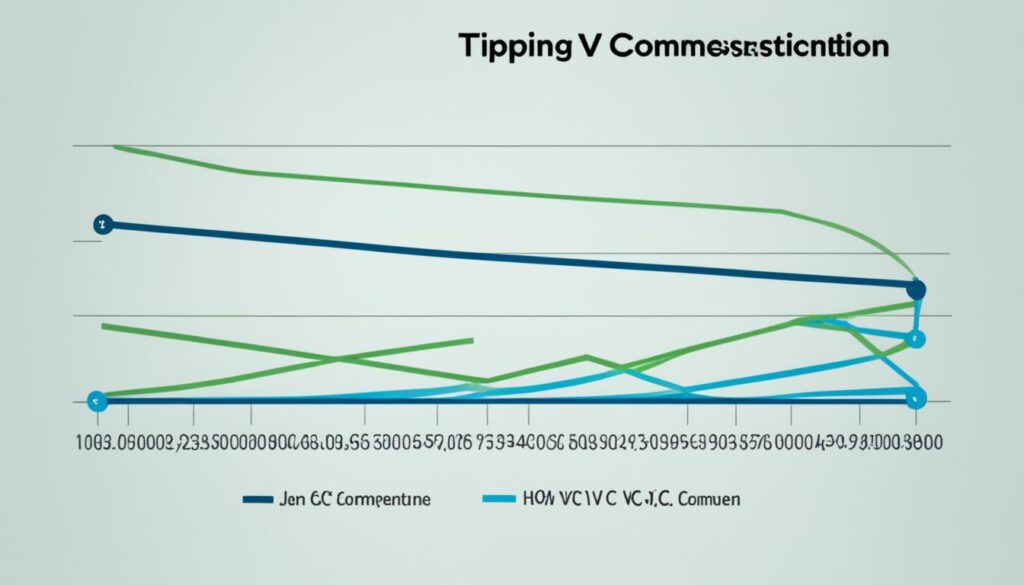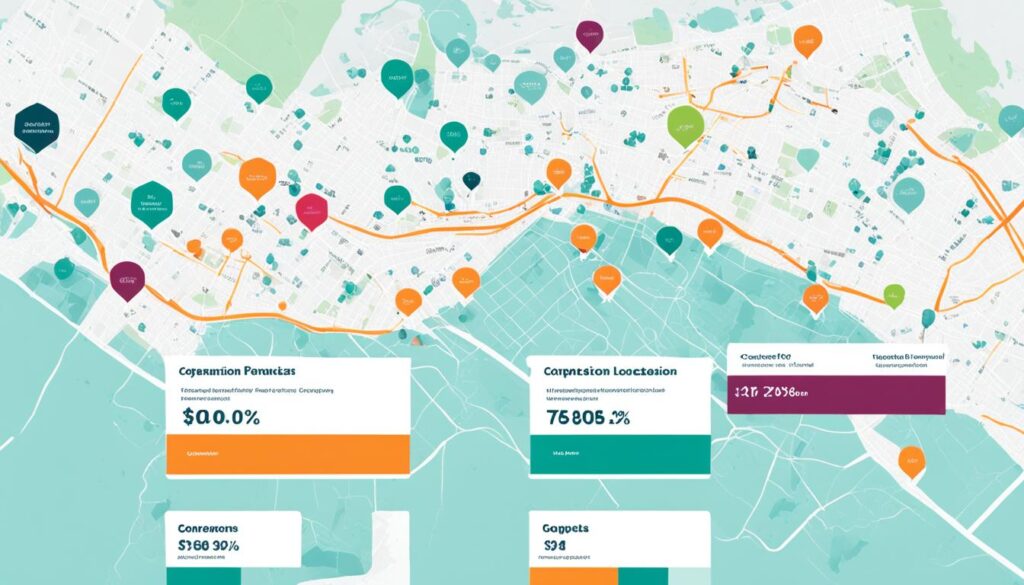If you’re considering a career in venture capital (VC), you’ve likely heard whispers of the industry’s lucrative compensation packages. But just how well does VC pay, and what factors determine the earning potential? As the venture capital landscape continues to evolve, understanding the nuances of VC compensation has become increasingly important for those seeking to enter this dynamic field.
Venture capital can offer the potential for substantial financial rewards, but the earning power varies significantly based on factors such as seniority, firm size, and investment performance. While entry-level roles in VC may provide lower salaries and bonuses compared to other finance jobs, the real wealth-building opportunity lies in the “carried interest” – a share of the profits generated by the firm’s investments. So, the question remains: Does VC pay well, and is the potential reward worth the risks?
Key Takeaways
- Venture capital can offer lucrative compensation, but the earning potential varies significantly based on factors like seniority, firm size, and investment performance.
- Junior-level VC roles, such as Analysts and Associates, may provide lower salaries and bonuses compared to investment banking or private equity.
- The potential for outsized returns in VC comes from “carried interest” – a share of the profits generated by the firm’s investments.
- Senior-level positions, like Partners and Managing Directors, can earn substantial base salaries, bonuses, and a significant portion of the firm’s carried interest.
- The venture capital industry is highly competitive, and job security is not guaranteed, as investors are judged on their ability to identify successful startups and generate outsized returns.
What is Venture Capital?
Venture capital refers to the financing that startups and small businesses with exceptional growth potential receive in exchange for equity ownership. Venture capital firms raise capital from limited partners, such as pension funds, endowments, and high-net-worth individuals, and then invest this capital in early-stage, high-growth-potential companies.
Understanding Venture Capital Firms
The venture capitalists, or VCs, are responsible for sourcing potential investments, conducting due diligence, negotiating deal terms, and providing ongoing support and guidance to the portfolio companies. Venture capitalists expect most of their investments to fail, but they aim to find the next Google, Facebook, or Uber, which could generate exceptional returns that offset the losses from their other investments.
The Role of Venture Capitalists
Venture capitalists play a crucial role in the startup ecosystem, providing not only financial capital but also strategic advice and industry connections to help entrepreneurs grow their businesses. By investing in promising companies, VCs hope to generate outsized returns for their limited partners and establish themselves as leaders in the venture capital industry.

Venture Capital Career Paths
The venture capital industry offers a well-defined career progression, with several distinct roles and levels of seniority. Let’s explore the key positions and responsibilities within this dynamic field.
Analyst Role
The entry-level position in the venture capital world is the Analyst role. Analysts typically engage in tasks such as financial analysis, industry research, and supporting the work of more senior team members. This role provides a valuable introduction to the venture capital ecosystem and the process of evaluating investment opportunities.
Associate Role
The Associate role is often filled by professionals with prior experience in investment banking, consulting, or startups. Associates are responsible for sourcing potential investments, conducting due diligence, and presenting deals to senior leadership. This position requires a strong understanding of the venture capital market and the ability to identify promising investment opportunities.
Senior Associate Role
The Senior Associate role is an intermediate position, where professionals serve as apprentices to Principals and Partners. Senior Associates gain hands-on experience in investment decision-making and portfolio company management, preparing them for more senior roles within the firm.
Principal/VP Role
Principals and Vice Presidents (VPs) are the senior-most members of the investment team, directly engaged in deal execution and portfolio company oversight. These professionals play a crucial role in shaping the firm’s investment strategy and managing the growth and success of the portfolio companies.
Partner/Junior Partner Role
The Partner/Junior Partner role represents a significant step in the venture capital career ladder. Professionals at this level are responsible for final investment decisions, fundraising, and overall firm strategy. They leverage their deep industry expertise and extensive networks to identify and support the most promising startups.
General Partner/Managing Director Role
The General Partner/Managing Director role is the pinnacle of the venture capital career path. These seasoned professionals are the leaders of the firm, responsible for setting the strategic direction, raising capital, and ensuring the continued success of the firm’s investments. General Partners and Managing Directors are the key decision-makers and the public face of the venture capital firm.

Salaries and Bonuses in Venture Capital
Venture capital compensation consists of base salaries, year-end bonuses, and carried interest (a share of the profits generated by the firm’s investments). Base salaries and bonuses are typically funded from the management fees the firm charges, while carried interest is a percentage of the investment profits.
Base Compensation
For entry-level Analysts, the total compensation range is $60,000 to $100,000, with the base salary making up the majority. Pre-MBA Associates can earn between $100,000 and $350,000 in total compensation, with a larger bonus component. Senior Associates can earn $150,000 to $480,000, with the potential for a small share of carried interest.
Principals and VPs can earn $140,000 to $340,000, with an increasing stake in carried interest. At the Partner and General Partner levels, total compensation can reach $400,000 to $2 million or more, with a significant portion coming from carried interest.
Bonus Structure
The bonus structure in venture capital is closely tied to the firm’s investment performance and the individual’s contribution to the success of the firm’s portfolio companies. Bonuses can make up a significant portion of a VC professional’s total compensation, especially at the more senior levels, where a larger share of carried interest is typically awarded.

| Role | Base Salary Range | Bonus Range | Total Compensation Range |
|---|---|---|---|
| Analyst | $60,000 – $90,000 | $10,000 – $30,000 | $60,000 – $100,000 |
| Associate (Pre-MBA) | $100,000 – $250,000 | $40,000 – $100,000 | $100,000 – $350,000 |
| Senior Associate | $150,000 – $300,000 | $50,000 – $180,000 | $150,000 – $480,000 |
| Principal/VP | $140,000 – $250,000 | $50,000 – $90,000 | $140,000 – $340,000 |
| Partner/General Partner | $400,000 – $1,000,000+ | $100,000 – $1,000,000+ | $400,000 – $2,000,000+ |
Carried Interest in Venture Capital
Carried interest, or “carry,” is the primary driver of outsized compensation in the venture capital industry. Carried interest represents a share of the investment profits that the VC firm earns, typically around 20% of the gains. For example, if a VC firm invests $5 million in a startup that is later acquired for $100 million, the firm would earn $20 million in profits (assuming no additional funding rounds or dilution). Of that $20 million, the firm would keep 20%, or $4 million, as carried interest, with the remaining $16 million distributed to the limited partners.
How Carried Interest Works
The carried interest structure is designed to align the interests of the VC firm and the limited partners. By receiving a portion of the investment profits, the VC firm is incentivized to identify and support the most promising startups, as their success directly translates to higher earnings for the firm. This VC profit sharing model has been a crucial element in the venture capital industry’s ability to generate exceptional returns for investors over the long term.
Carried Interest Distribution
The distribution of carried interest within the VC firm is not standardized, but generally, the more senior the role, the larger the share of carried interest. Partners and Managing Directors typically receive the largest portions of carried interest, while junior-level professionals may have a small or nonexistent stake. This carried interest structure incentivizes the top talent to remain with the firm and continue delivering exceptional investment performance.

Does VC Pay Well?
Overall, venture capital can be a lucrative career path, but the earning potential varies significantly based on factors such as seniority, firm size, and investment performance. While junior-level roles in VC may provide lower salaries and bonuses compared to investment banking or private equity, the potential for outsized returns comes from carried interest, which can multiply the total compensation for senior-level professionals.
Partners and Managing Directors at top-tier VC firms can earn total compensation in the millions of dollars, with a significant portion coming from their share of the firm’s carried interest. However, the venture capital industry is highly competitive, and job security is not guaranteed, as investors are judged on their ability to identify successful startups and generate outsized returns for their limited partners.
| Role | Total Compensation Range |
|---|---|
| Analyst | $60,000 – $100,000 |
| Pre-MBA Associate | $100,000 – $350,000 |
| Senior Associate | $150,000 – $480,000 |
| Principal/VP | $140,000 – $340,000 |
| Partner/General Partner | $400,000 – $2+ million |
The table above provides a glimpse into the compensation ranges for various roles in the venture capital industry, highlighting the significant potential for senior-level professionals to earn lucrative compensation compared to other finance roles.

Venture Capital Hotspots
The venture capital industry in the United States is primarily centered around three key hubs: Silicon Valley, New York, and Boston. These regions are home to many of the top
and offer the highest compensation for VC professionals.
Silicon Valley
In Silicon Valley, VC Analysts can earn the highest base salaries, averaging around $96,000. This region’s thriving startup ecosystem and high cost of living contribute to the competitive compensation packages for entry-level VC roles.
New York
While Silicon Valley leads in base salaries, New York offers the highest bonuses for VC Analysts, with a median bonus of $28,000. This helps New York VC Analysts earn the highest median total compensation of $123,000 among the major
.
Boston
For VC Associates, Los Angeles offers the highest median total compensation at $185,000. However, the San Francisco Bay Area, which includes Silicon Valley, pays the highest median base salaries and bonuses for VC Senior Associates, at $165,000 and $45,000, respectively, resulting in a total median compensation of $210,000.
These regional differences in VC compensation reflect the varying levels of competition, cost of living, and investment activity in each
Factors Influencing Venture Capital Compensation
Several key factors influence the compensation levels in the venture capital industry. The size of the VC fund is a significant driver, as larger funds with more assets under management can offer higher base salaries, bonuses, and carried interest to their professionals. Firm reputation is also a major factor, as top-tier VC firms can attract the best talent and offer more lucrative compensation packages. Investment performance is perhaps the most critical factor, as VC firms and their professionals are judged primarily on their ability to generate outsized returns for their limited partners.
Fund Size
Venture capitalists who consistently identify successful startups and generate substantial investment profits will be rewarded with a larger share of carried interest, which can significantly boost their total compensation. Conversely, poor investment performance can limit a VC’s earning potential, as carried interest is the primary driver of outsized compensation in the industry.
Firm Reputation
The reputation of the VC firm is also a crucial factor in determining compensation levels. Top-tier VC firms, known for their successful track records and ability to attract the best startups, can offer more competitive compensation packages to attract and retain the top talent in the industry.
Investment Performance
Finally, the investment performance of the VC firm and its individual professionals is the most critical factor in determining compensation. Venture capitalists who consistently identify and support high-growth startups that generate outsized returns for their limited partners will be rewarded with a larger share of carried interest, which can significantly boost their total compensation.

Comparing Venture Capital to Other Finance Careers
When examining venture capital compensation in relation to other finance careers, there are both similarities and distinctions. Investment banking typically offers higher base salaries and bonuses, especially at the junior levels, as the work is often more structured and the deal execution process is more standardized.
In contrast, private equity can provide compensation on par with or even higher than investment banking, with a greater emphasis on carried interest. Hedge funds, like venture capital, also have the potential for outsized compensation due to the performance-based nature of the industry, but the work is often more quantitative and less focused on networking and deal sourcing.
Investment Banking
VC compensation compared to investment banking, the base salaries and bonuses in venture capital may be lower than investment banking, particularly at the junior levels. This is often due to the more structured and process-driven nature of investment banking deals, compared to the more collaborative and relationship-driven approach in venture capital.
Private Equity
Private equity, on the other hand, can offer VC compensation compared to private equity that is on par with or even higher than investment banking, with a greater emphasis on carried interest. This is due to the high-stakes nature of private equity investments and the potential for substantial returns on successful deals.
Hedge Funds
Hedge funds, like venture capital, also have the potential for VC compensation compared to hedge funds outsized compensation due to the performance-based nature of the industry. However, the work in hedge funds is often more quantitative and less focused on networking and deal sourcing, in contrast to the more relationship-driven approach in venture capital.
While the base salaries and bonuses in venture capital may be lower than these other finance roles, the potential for substantial carried interest can make VC a lucrative career path for those who are successful in identifying and supporting high-growth startups.
The Pros and Cons of Venture Capital Careers
Pursuing a career in venture capital offers both advantages and disadvantages. Let’s explore the key considerations for those interested in the
as well as the potential
.
Advantages
One of the primary advantages of a venture capital career is the opportunity to work closely with innovative startups. VC professionals have a front-row seat to the latest technological advancements and have the chance to directly impact the growth and success of emerging companies. Additionally, the potential for substantial financial rewards through carried interest, or a share of the firm’s investment profits, can make VC an incredibly lucrative career path for those who are successful in identifying and supporting high-growth startups. Venture capital professionals also often enjoy a more flexible work-life balance compared to other finance roles, with fewer all-nighters and a more relaxed office environment.
Disadvantages
However, the venture capital industry also comes with its own set of challenges. The high-risk nature of the business and the need to consistently identify successful investments can create significant job insecurity, as poor performance can lead to partners or even entire firms being replaced. The competition for junior-level roles is also fierce, and the path to partnership is not guaranteed, even for top performers. Furthermore, the long investment horizons and the “get rich slowly” nature of the business may not appeal to those seeking more immediate financial rewards.
Ultimately, whether a venture capital career is the right fit depends on an individual’s personal goals, risk tolerance, and passion for working with innovative companies and entrepreneurs. Understanding both the advantages and disadvantages of the industry is crucial in making an informed decision about pursuing a VC career.

Breaking into Venture Capital
Aspiring venture capital (VC) professionals often wonder how to break into this competitive industry. Breaking into the venture capital industry typically requires a combination of education, relevant experience, and strong networking skills. Many VC firms seek out professionals with advanced degrees, such as an MBA from a top business school, or those with technical expertise, such as a Ph.D. in a field like biology or chemistry.
Educational Requirements
Advanced degrees are highly valued in the VC industry, as they demonstrate a deep understanding of business principles, financial analysis, and the ability to think strategically. In addition to MBAs, some VC firms also prioritize candidates with technical backgrounds, such as those with engineering or scientific degrees, as they can provide valuable insights into emerging technologies and industries.
Relevant Experience
Relevant experience in related industries, such as investment banking, management consulting, or startup operations, is also highly valued by VC firms. These backgrounds showcase an understanding of the startup ecosystem, financial modeling, and the ability to evaluate investment opportunities. Professionals with hands-on experience in building or scaling a successful venture are often well-positioned to transition into a VC career.
Networking and Building Relationships
Networking and building relationships within the VC community is crucial for breaking into the industry. Many junior-level roles in venture capital are filled through personal connections and referrals. Attending industry events, participating in VC-focused online communities, and leveraging existing personal and professional networks can all be effective strategies for connecting with VC professionals and learning about potential job opportunities.

Conclusion
In conclusion, a career in venture capital can offer the potential for substantial financial rewards, particularly at the senior levels. While venture capital compensation may not match the base salaries and bonuses found in investment banking or private equity, the opportunity to earn a share of the profits, known as carried interest, can significantly boost an individual’s total compensation over time. However, the venture capital industry is highly competitive, and job security is not guaranteed, as investors are judged primarily on their ability to identify and support successful startups.
Ultimately, whether a venture capital career is worth pursuing will depend on an individual’s personal goals, risk tolerance, and passion for working with innovative companies and entrepreneurs. For those who thrive in a dynamic, high-risk environment and possess the skills to consistently identify and support the next big disruptors, a career in venture capital can be an immensely rewarding and lucrative path. But it’s essential to weigh the potential rewards against the inherent challenges and uncertainties that come with this finance specialty.
As you consider your options, it’s important to understand the venture capital compensation landscape and the factors that can influence your earning potential. By aligning your personal and professional goals with the realities of the industry, you can make an informed decision about whether a career in venture capital is the right fit for you.

